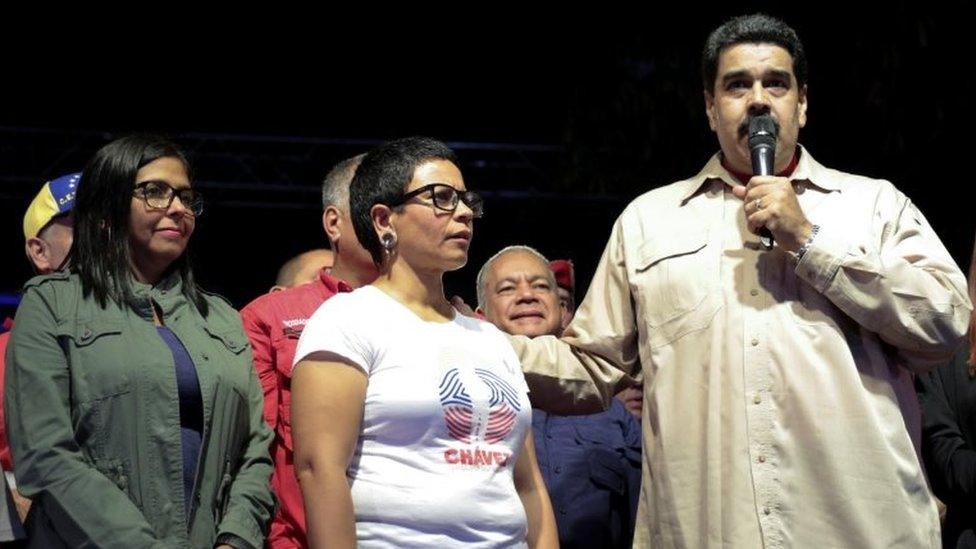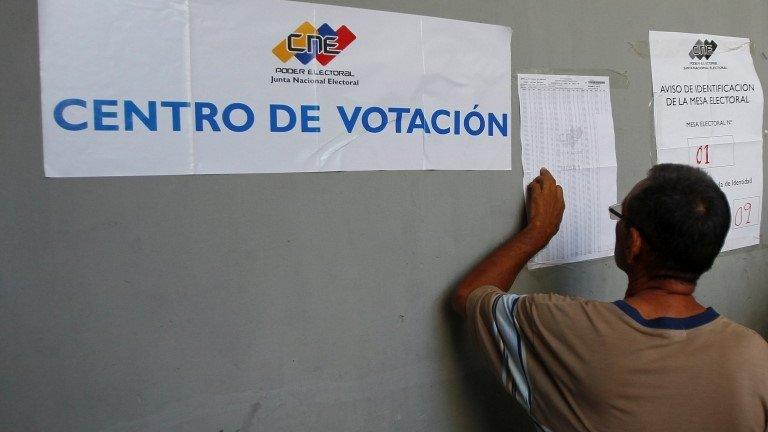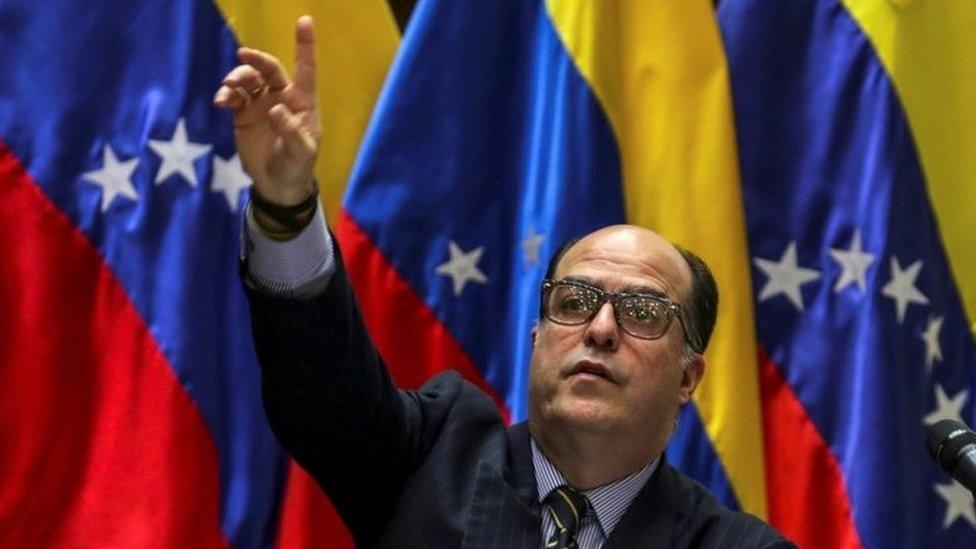US and Venezuela spar over ban on opposition parties
- Published

President Nicolás Maduro made the controversial announcement after Sunday's municipal elections
Venezuelan and US officials have been trading barbs after Venezuelan leader Nicolás Maduro said that some opposition parties would be banned from next year's presidential election.
The US state department said it was "an extreme measure" designed to consolidate President Maduro's power.
Elected in 2013, Mr Maduro is expected to run for a second term in 2018.
Venezuelan Foreign Minister Jorge Arreaza called the US statement "ridiculous".
The spat between the two countries, which have been at loggerheads for years, was triggered by the announcement on Sunday by President Maduro.
Speaking after he had cast his vote in municipal elections on Sunday, Mr Maduro said that the parties which had boycotted those polls would be banned from the presidential election next year.
"They cannot take part. They will disappear from the political map," he said.
"Parties which did not participate today and called for a boycott of the elections can't take part [in elections] any longer. That's the criterion that the constituent assembly set out constitutionally and legally and I, as head of state (...), support them," President Maduro said referring to the assembly which he convened earlier this year and which is exclusively made up of government supporters.
The opposition parties affected by the move are Justice First, Popular Will and A New Era, all three of which boycotted the municipal polls because they said they would be neither free nor fair.
US state department spokeswoman Heather Nauert was scathing in her reaction to Mr Maduro's announcement.
Allow X content?
This article contains content provided by X. We ask for your permission before anything is loaded, as they may be using cookies and other technologies. You may want to read X’s cookie policy, external and privacy policy, external before accepting. To view this content choose ‘accept and continue’.
In turn, Venezuelan Foreign Minister Jorge Arreaza, tweeted that the US statement was indicative of the Trump administration's "powerlessness".
Allow X content?
This article contains content provided by X. We ask for your permission before anything is loaded, as they may be using cookies and other technologies. You may want to read X’s cookie policy, external and privacy policy, external before accepting. To view this content choose ‘accept and continue’.
Mr Arreaza also pointed to the overwhelming win by President Maduro's governing socialist PSUV party in the mayoral elections as evidence of its enduring popularity.
President Maduro said on Monday evening that candidates from the governing coalition had won in 305 out of 335 municipalities and also in the re-run of the election in the state of Zulia.
The opposition Popular Will party said the election had been a "farce".
Earlier, a member of the National Electoral Council, Luis Emilio Rondón, said that there had been some irregularities, without giving further details.
Popular Will's national co-ordinator Juan Andrés Mejía said the party would "not give up" and would continue fighting despite the fact that "half of our leadership is either in exile or in detention".
- Published11 December 2017

- Published30 October 2017
